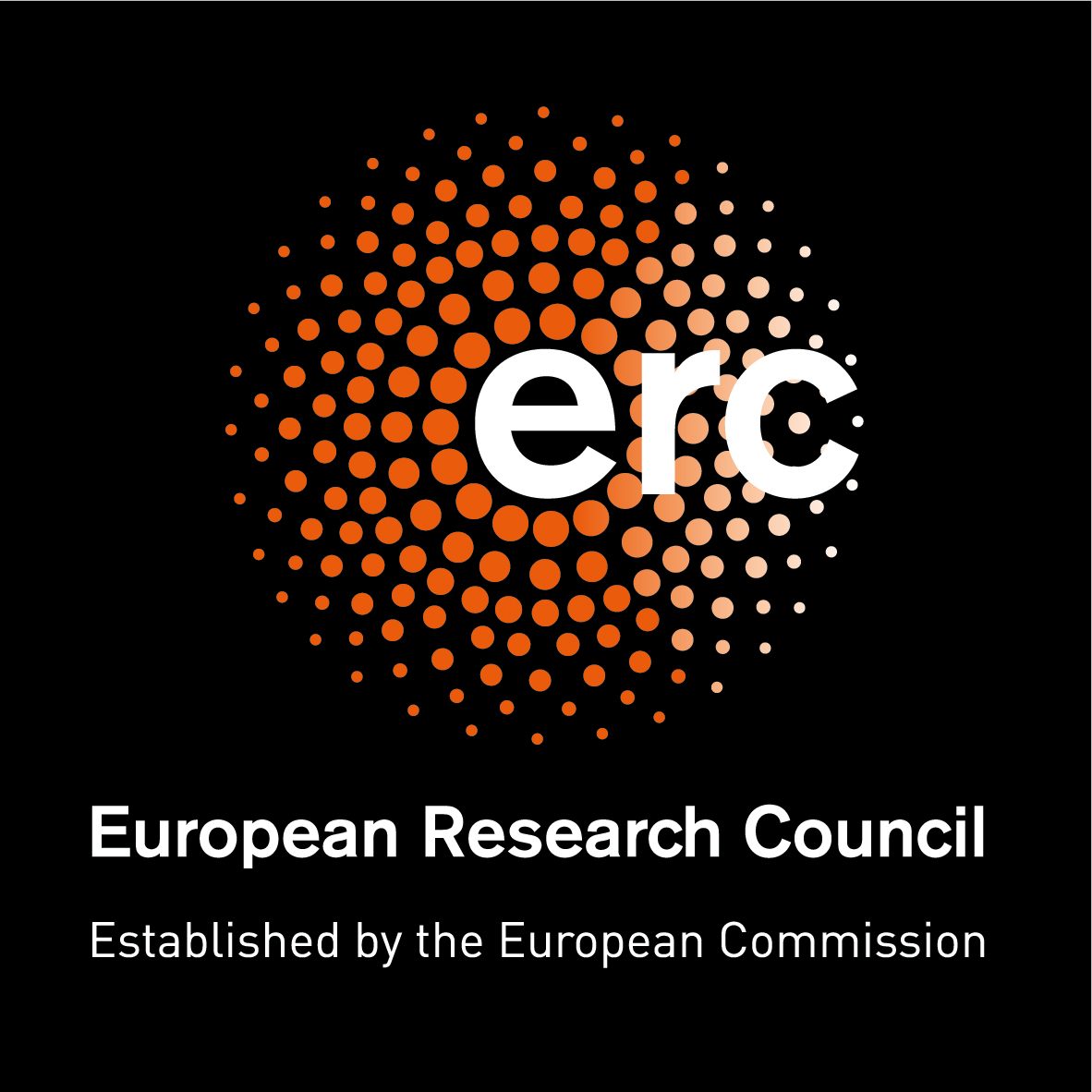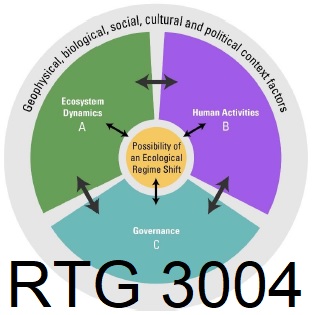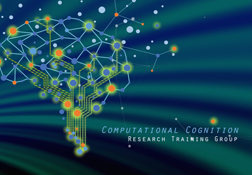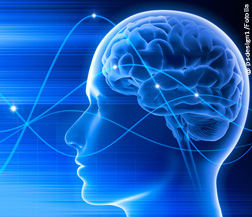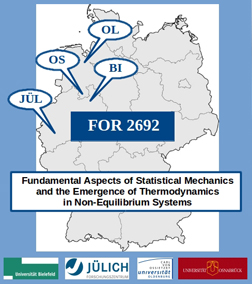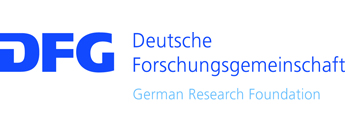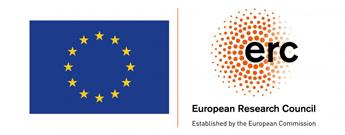Main content
Top content
Excellent research projects
SFB 1604: Production of migration
How and by whom does migration, i.e. the spatial change of the center of life, take on changing meanings? How and why does society's approach to migration change? These questions are the focus of the Collaborative Research Center “Production of Migration”, which thus addresses a research gap: the insufficient understanding of how and with what consequences for the transformation of societies they produce migration and its constantly renegotiated meaning. The aim of the Collaborative Research Center is to develop a reflexive theory of the social production of migration that includes science as an object of research.
Collaborative Research Center 1557: Functional plasticity encoded by cellular membrane networks
For their basic biochemical questions, the researchers in the Collaborative Research Center 1557 use state-of-the-art methods of fluorescence microscopy and mass spectrometry, as well as a cryo-electron microscope, which has been available since 2021. The Center for Cellular Nanoanalytics Osnabrück (CellNanOs) on the Westerberg campus is the hub of top-level research at the SFB in Osnabrück. Of particular interest is the analysis of functional plasticity, i.e. the adaptation of membranes to new conditions such as oxidative stress or starvation, which is essential for the survival of organisms.
A decisive advantage of the SFB 1557 lies in the close cooperation of working groups with different biological model systems and methodical expertise.
European Research Council - Starting Grant: TIME – Towards a dynamic account of natural vision
When we see, various aspects dynamically intertwine. The ERC Starting-Grant will take a closer look at this fascinating process: through sight, visual information is filtered and selected in just a moment, processed in the brain and combined with much more known information. At the same time, a number of processes are running, such as deciding when and where to move the eyes to gather more information. In order to better understand these interlocking processes, high-resolution measurements of brain waves are being taken, analyzed and modeled using machine learning methods.
European Research Council - Consolidator Grant: Taking turns - The ‘missing’ link in language evolution?
The emergence and development of communication and the special significance of gestures are at the heart of the ERC Consolidator Grant project by Prof. Dr. Simone Pika. It is concerned with the development and evolution of the cooperative turn-taking. In particular, the development of infants, primates and ravens is taken into consideration. In addition, the influence of ecology and social structure on communication as well as the endocrinological profile are examined. The turn-taking system can be understood as uniquely human. At the same time, it can regarded as providing the evolutionary “missing link” between animal and human communication.
DFG Emmy Noether project on „Scales in language acquisition and processing“
The Emmy Noether project seeks to shed new light on long-standing debates about the nature of Horn scales and alternatives, by investigating a large number of such expressions in language processing and acquisition. The overarching goal is to develop a new model of scales and implicature, that accounts for variability among such expressions. We will examine (a) the extent to which a single mechanism underlying implicature computation can be retained for different Horn scales and (b) the kinds of alternatives that constitute the basis for implicature computation. A major focus will lie on the interpretation of adjectival Horn scales, which have been well-studied in semantics but remain underexplored in pragmatics. We will employ a variety of psycholinguistic methods as well as probabilistic modeling tools in order to integrate insights from semantic and pragmatic theory and cognitive science. This project represents the first large-scale attempt at testing how various scales are processed and how semantic and pragmatic representations of scales develop in tandem.
DFG Research Training Group Ecological Regime Shifts and Systemic Risk in Coupled Social-Ecological Systems
Current developments in relation to climate change and the loss of biodiversity clearly show the extent of global interdependence and networking. Various crisis contexts have shown that this complexity and the resulting regime shifts (i.e. large-scale changes with long-lasting consequences in a complex system) and the associated systemic risks (that an entire system and not just its parts collapse) have so far been underestimated. Examples include the various impacts of intensive agriculture on biodiversity loss, soil degradation, water scarcity and pollution. These interlinked crises clearly show the urgency of interdisciplinary research for a better understanding of non-linear developments that may entail systemic risks and the ability to anticipate and respond to them. The Research Training Group is the first to comprehensively address ecological regime shifts, taking into account the dynamics of ecological systems, human activities and governance.
DFG Research Training Group nanomaterials@biomembranes
The Research Training Group nanomaterials@biomembranes aims to contribute to answering unsolved questions in membrane biology with a customized combination of artificial nanomaterials and biomembranes. The highly interdisciplinary, biophysical research approach from biology, chemistry and physics will enable the investigation of the structure, dynamics and interactions of proteins and lipids in cellular membranes with unprecedented spatial and temporal resolution. The groups involved in the Research Training Group will jointly develop new methods to understand central biological functions such as transport and signaling across membranes down to the atomic level. In order to achieve this, chemists and physicists must work very closely with biologists.
DFG Research Training Group Computational Cognition
The Research Training Group in Computational Cognition pursues the re-integration of cognitive science and artificial intelligence. Students in the program will be trained in both fields and will combine insights from both fields to understand intelligence in humans and machines. Exemplary problems that will be dealt with are of these domains that are easy for humans, but still hard for AI. They include analogical reasoning, concept invention, and pragmatic inferences. Integrating ideas from cognitive science and AI in the Research Training Group will allow to finally bridge the gap between low- and high-level cognition.
Participation in research training group: Situated cognition
The main goal of the joint Research Training Group (RTG) at Osnabrück University and Ruhr-University Bochum is to identify deficits in traditional conceptions of the human mind and to refine and enhance the existing conceptions by drawing on new developments in the cognitive sciences that have not yet made their way into the prevailing philosophical approaches. Philosophical analysis will provide the conceptual framework for the investigation of the four central cognitive phenomena perception, agency, emotions and social and linguistic understanding. It will foster the RTG’s understanding of these phenomena by integrating the results of empirical research and philosophical theorizing into a unified theoretical framework.
Since research on mental phenomena has become a decidedly interdisciplinary endeavor over the past two decades, it is inevitable that representative empirical studies are systematically integrated into the RTG’s work. The overarching goal is to develop an account of cognition, by integrating in a philosophically critical way both the empirical advances over the past decades and current conceptions of various cognitive phenomena, in particular with regard to their essentially situated nature.
DFG Research Group „Fundamental Aspects of Statistical Mechanics and the Emergence of Thermodynamics in Non-Equilibrium Systems“
Whether and how a system equilibrates towards some sort of steady long-time limit is a key issue in many areas of modern many-body physics. The DFG-funded research group "Fundamental Aspects of Statistical Mechanics and the Emergence of Thermodynamics in Non-Equilibrium Systems" deals with this complex issue. It is led by Juniorprof. Dr. Robin Steinigeweg. Participants are the universities of Bielefeld and Oldenburg as well as the Forschungszentrum Jülich. The DFG is providing the group with funds amounting to approx. 1.3 million euros for an initial period of three years.
Top content
All research institutions at Osnabrück University (Information in German)

